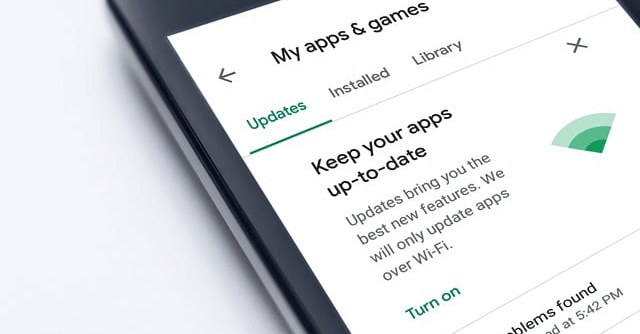
Google pauses Play Billing system in India after CCI order


New Delhi: Google on Tuesday said that it will pause the enforcement of its Play Billing policy for app developers in India. The move comes a week after the Competition Commission of India (CCI) hit the company with a fine for its anticompetitive payment and billing policies on the Play Store. The Play Billing policy, under which Google made it mandatory for developers to use its built-in payment methods, was set to be enforced from October 31.
“Developers in India were given an additional extension until October 31, 2022 to comply due to unique circumstances with the payments landscape in the country. Following the CCI's recent ruling, we are pausing enforcement of the requirement for developers to use Google Play's billing system for the purchase of digital goods and services for transactions by users in India while we review our legal options and ensure we can continue to invest in Android and Play,” Google said through its help pages.
If the policy had been enforced, apps that failed to integrate Google’s own billing mechanism for paid apps and in-app purchases after October 31 may have been suspended or removed from the Play Store. The CCI order, which came on October 25, said that Google cannot force its vendors to use its own payment instrument only.

While Google hasn’t disclosed the size of the commissions it earns from the Play Store in India, Mint reported on October 25 that the CCI ruling would likely spur app developers and marketers to lobby regulators in the country to force Google to cut the in-app transaction fees.
Experts said that going forward, it may be difficult for Google to bring back the mandatory usage of its own billing instruments, and may also be the first step towards normalizing the transaction fees that other payment merchants charge.
“Even if Google calls this a temporary move, I do not see a way for them to remain compliant with the new regulation and also bring its previously intended payment policy back to India. As a result, the company may look to adopt a different way in order to continue to earn revenue, and offset its Play Store earnings that it may have initially expected,” said tech policy analyst Prasanto K. Roy.

According to data filed by the company with the Registrar of Companies (RoC), as of FY21 Google earned annual revenue of ₹14.8 crore through payments on the Play Store — a meager 0.2% of the company’s annual revenue for that financial year.
To be sure, Google has been in the process of making changes to its policy as well. Last month, the company began a pilot program in India that allowed app vendors to use third party billing systems while still distributing apps through the Store. However, even when a third party payment mechanism is used, Google offered a 4% discount on its Play Store commission rate — keeping its base rate of 15% commission for the first $1 million revenue, and 30% thereafter, intact.
Furthermore, the October 31 deadline would have required any app vendor on the Play Store to have compulsorily integrated Google’s own billing system, even if they signed up for the pilot program to use its own billing service.

As a result, Google’s suspension of the Play Store billing compliance deadline likely signals a positive move.
“This is a move that the industry had been already asking for. Google’s commissions were extremely steep — and if a business operated on a 5-10% margin, paying a commission of 15% or 30% would have meant that businesses would have either had to run charity, or offer a highly inflated price of product to consumers,” said Rameesh Kailasam, founder of industry body IndiaTech.
He further added that a regulated commission rate could be good even for Google. “Given that Google’s product is good, a lower commission rate may even urge a larger number of developers to use its billing mechanism — which may eventually help Google earn higher revenue from its payments and billing infrastructure in the country.”

